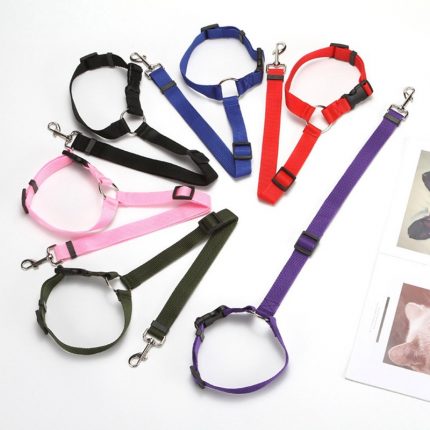Why Do Dogs Eat Charcoal?
Dogs are known for their curious and sometimes peculiar eating habits. While it may seem strange to us, one of the more puzzling behaviors exhibited by some dogs is their tendency to eat charcoal. Charcoal, typically used for grilling or as a natural remedy, does not provide any nutritional value to dogs. So, why do they engage in this behavior?
There are several possible reasons why dogs may be drawn to charcoal. One theory suggests that dogs may be instinctively drawn to the smoky aroma and taste of charcoal. The strong scent of burning wood and the unique flavor it imparts to food can be enticing to a dog’s sensitive sense of smell and taste. This could explain why dogs might be tempted to consume charcoal when they come across it.
Another reason could be that dogs eat charcoal as a form of self-medication. Charcoal is known for its absorbent properties and is commonly used as a remedy for gastrointestinal issues in both humans and animals. It is believed that dogs may instinctively seek out charcoal when they are experiencing digestive discomfort or an upset stomach. The charcoal may help to absorb toxins or irritants in their digestive system, providing some relief.

Additionally, some experts believe that dogs may eat charcoal simply out of boredom or as a result of pica, a condition where animals have a compulsive desire to eat non-food items. Dogs with pica may display a range of unusual eating behaviors, including consuming charcoal. This behavior could be a manifestation of their need for mental stimulation or a way to alleviate anxiety or stress.
While eating small amounts of charcoal may not necessarily be harmful to dogs, it is important for pet owners to exercise caution. Ingesting large quantities of charcoal can lead to intestinal blockages or other digestive issues. It is always advisable to consult with a veterinarian if you suspect your dog has consumed a significant amount of charcoal or if you notice any unusual symptoms.
In conclusion, the reasons why dogs eat charcoal can vary from instinctual attraction to the smoky aroma and taste, to self-medication for digestive issues, or even as a result of boredom or compulsive behavior. Understanding these potential motivations can help pet owners better manage and prevent this behavior. By providing appropriate mental stimulation, ensuring a balanced diet, and consulting with a veterinarian when necessary, we can help keep our furry friends safe and healthy.
The Fascinating Reasons Behind Dogs Eating Charcoal
Dogs and Their Unusual Eating Habits
Dogs have a reputation for eating things that seem bizarre to us humans. From socks to sticks, they often exhibit peculiar behaviors when it comes to their food choices. One such behavior that leaves many pet owners scratching their heads is the consumption of charcoal. While charcoal is not a typical part of a dog’s diet, there are several reasons why they may be drawn to it.
Instinctual Attraction to Smoky Aroma and Taste
One theory suggests that dogs are instinctively attracted to the smoky aroma and taste of charcoal. When charcoal is used for grilling, it emits a distinct scent that can be quite appealing to a dog’s sensitive sense of smell. Additionally, the flavor that charcoal imparts to food may intrigue dogs and lead them to explore this unusual substance further.
Self-Medication for Digestive Discomfort
Another possible reason for dogs eating charcoal is self-medication. Charcoal is known for its absorbent properties and is often used as a remedy for gastrointestinal issues in both humans and animals. Dogs may instinctively seek out charcoal when they are experiencing digestive discomfort or an upset stomach. The charcoal can help absorb toxins or irritants in their digestive system, providing some relief.
It is important to note that while charcoal may provide temporary relief, it is not a substitute for proper veterinary care. If your dog is experiencing digestive issues, it is always best to consult with a veterinarian to determine the underlying cause and appropriate treatment.
Boredom and Compulsive Behavior
Some experts believe that dogs may eat charcoal out of boredom or as a result of a condition called pica, a question that brings us to ponder, “Why do dogs eat charcoal?” Pica is characterized by a compulsive desire to eat non-food items, and dogs with this condition may display a range of unusual eating behaviors, including consuming charcoal. This behavior, leading one to ask “Why do dogs eat charcoal?” could be a manifestation of their need for mental stimulation or a way to alleviate anxiety or stress.
To prevent dogs from engaging in such behaviors, which might make pet owners wonder, “Why do dogs eat charcoal?” it is crucial to provide them with adequate mental and physical stimulation. Engaging in regular exercise, interactive play, and providing puzzle toys can help keep their minds occupied and reduce the likelihood of them seeking out unconventional items to consume, addressing the concern behind “Why do dogs eat charcoal?” Providing a variety of activities can help mitigate the curiosity that leads to the question, “Why do dogs eat charcoal?” and ensure that your dog remains healthy and engaged, steering clear of harmful substances.
Conclusions
In conclusion, understanding the peculiar habits of our canine friends, such as why do dogs eat charcoal, can significantly enhance our ability to care for them properly. For more in-depth insights into this topic, visit geepets.com, where you’ll find a wealth of resources dedicated to answering some of the most intriguing questions about dog behaviors and their health implications.
Additionally, for further reading and external resources, the American Kennel Club (AKC) website at akc.org offers expert advice and information on a wide range of canine habits, including dietary quirks. Both of these resources can provide valuable information to help you ensure your dog’s health and well-being.

Actionable Recommendations to Address Dogs Eating Charcoal
1. Supervise and Limit Access
To prevent dogs from eating charcoal, it is crucial to supervise them closely, especially during outdoor activities or barbecues. One might wonder, why do dogs eat charcoal? The curiosity or the allure of something different could be reasons, but understanding why do dogs eat charcoal helps in taking preventive measures.
Keep charcoal and other potentially harmful substances out of their reach, addressing the curiosity behind why do dogs eat charcoal by removing the temptation altogether. Restrict access to areas where charcoal is stored or used, ensuring that it is securely stored in a location inaccessible to your dog. This step is vital, as it directly tackles the question of why do dogs eat charcoal by limiting their ability to do so. In doing so, you not only keep them safe but also mitigate any health risks associated with the ingestion of charcoal, making the understanding of why do dogs eat charcoal an essential part of pet care.
2. Provide a Balanced Diet
A balanced and nutritious diet is essential for your dog’s overall health and well-being, addressing concerns such as “Why Do Dogs Eat Charcoal?” Ensuring that they receive all the necessary nutrients from their food is crucial. Consult with a veterinarian to determine the appropriate diet for your dog’s specific needs, as this can help minimize the likelihood of them seeking out alternative substances like charcoal. Understanding “Why Do Dogs Eat Charcoal” can lead to insights into their dietary deficiencies or behavioral quirks.
A well-balanced diet is key in preventing such scenarios. If you’re asking “Why Do Dogs Eat Charcoal,” it might be a sign to reevaluate their current nutritional intake and make necessary adjustments. Addressing the root cause of “Why Do Dogs Eat Charcoal” through a proper diet can significantly reduce this behavior by ensuring they are not missing out on essential nutrients.
3. Mental and Physical Stimulation
Boredom and lack of mental stimulation can contribute to dogs engaging in unusual eating behaviors, prompting the question, “Why do dogs eat charcoal?” To prevent this, provide your dog with plenty of mental and physical stimulation. Engaging them in regular exercise, interactive play, and training sessions can help address the curiosity behind “Why do dogs eat charcoal?” Puzzle toys and treat-dispensing toys can also keep their minds occupied and redirect their focus away from consuming non-food items, including charcoal.
Incorporating these strategies can help mitigate the underlying reasons behind the question, “Why do dogs eat charcoal?” by ensuring your dog’s environment is enriched and stimulating, reducing the likelihood of them turning to such behaviors out of boredom or lack of mental engagement.
4. Seek Veterinary Advice
5. Consider Safe Alternatives
If you’re pondering, “Why do dogs eat charcoal?” and your dog seems particularly drawn to the smoky aroma and taste of charcoal, consider providing safe alternatives. For example, you can offer them smoked dog treats or use natural flavorings to enhance their meals.
This approach not only addresses the curiosity behind “Why do dogs eat charcoal?” but also satisfies their cravings without exposing them to the potential risks associated with consuming charcoal. By understanding “Why do dogs eat charcoal?” and acting on it, you ensure your dog’s dietary interests are met safely and healthily.
6. Training and Behavior Modification
If your dog displays compulsive behavior or engages in pica-like tendencies, professional training or behavior modification techniques may be beneficial. Consult with a qualified dog trainer or animal behaviorist to address these issues effectively. They can help identify the underlying causes and develop a tailored plan to redirect your dog’s behavior towards more appropriate activities.
Remember, every dog is unique, and what works for one may not work for another. It is essential to assess your dog’s individual needs and seek personalized advice from professionals when necessary. With proper care, attention, and preventive measures, we can help our beloved canine companions avoid the consumption of charcoal and maintain their overall health and happiness.
















